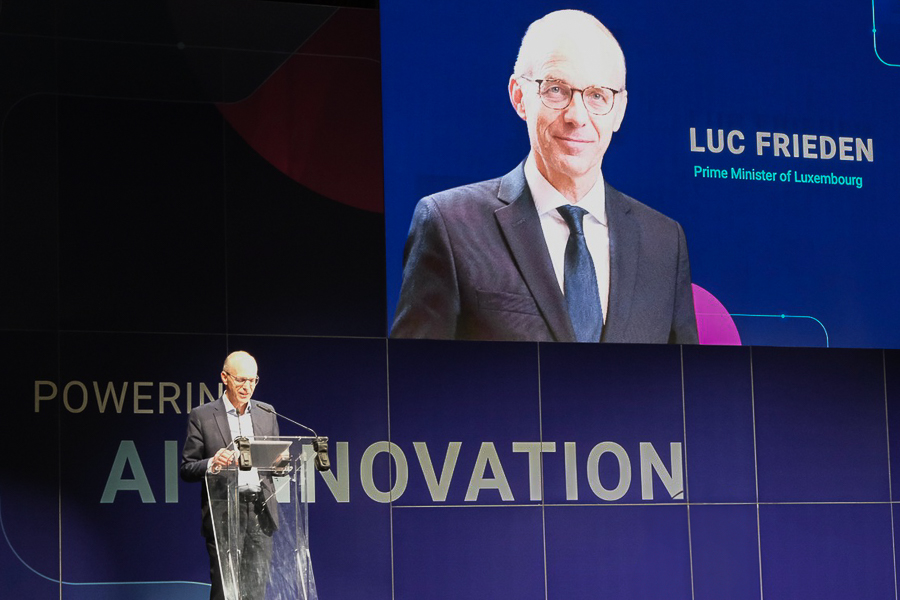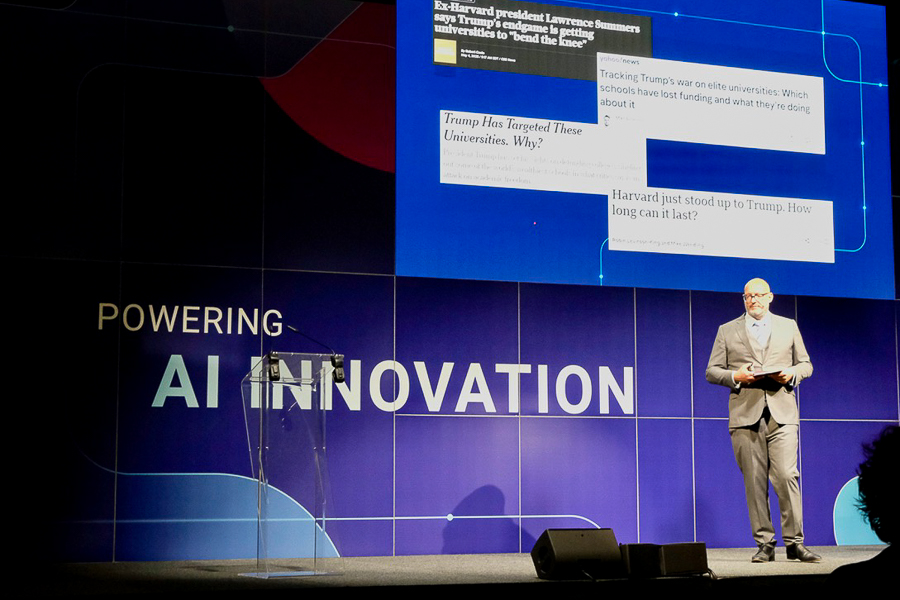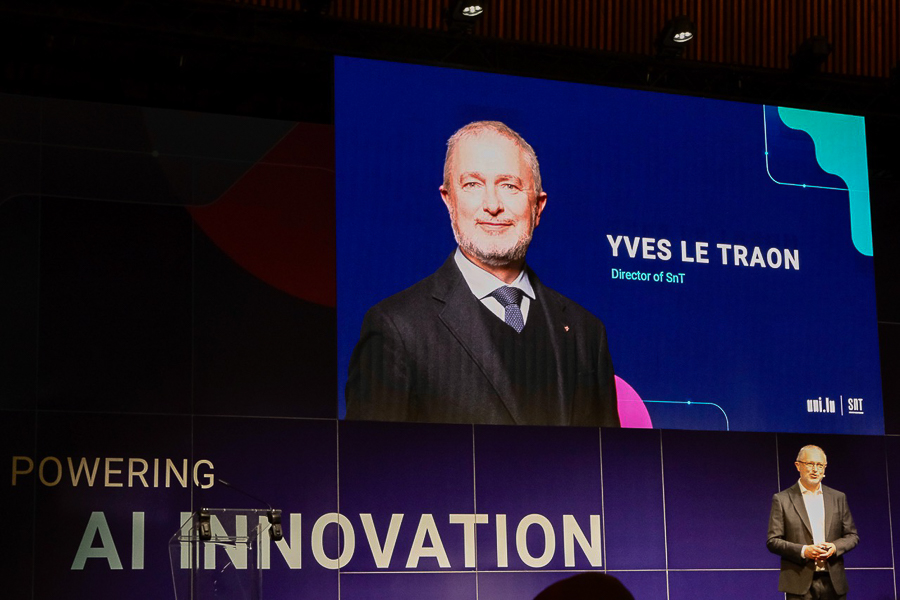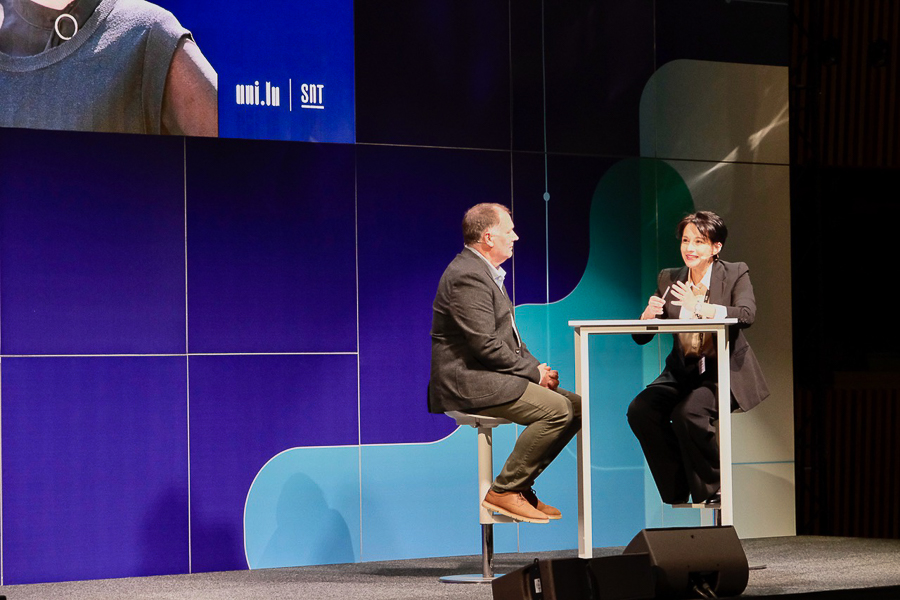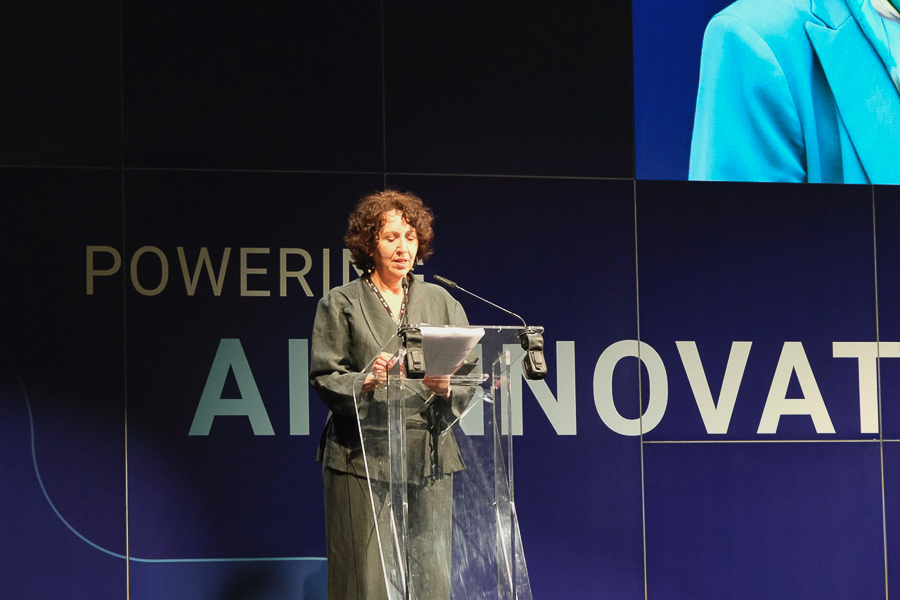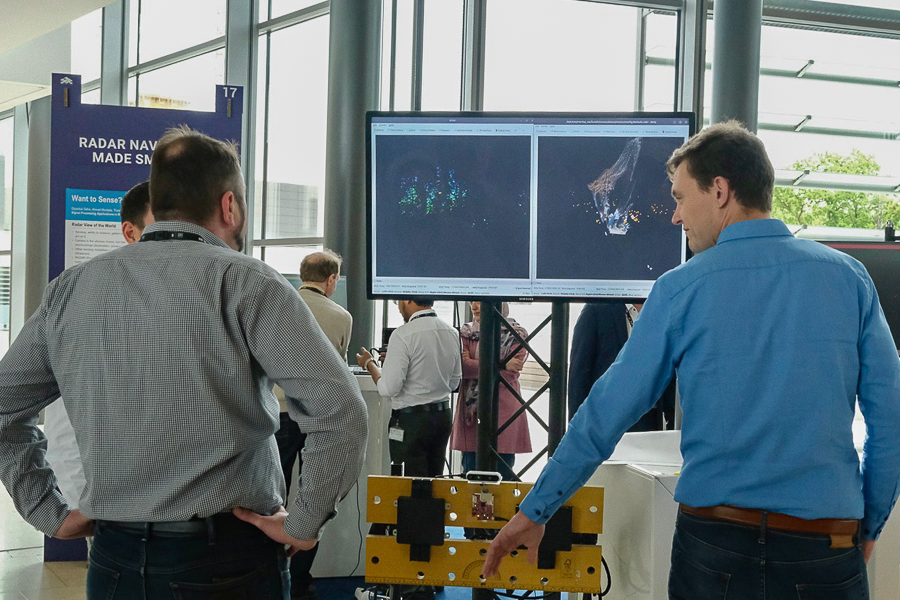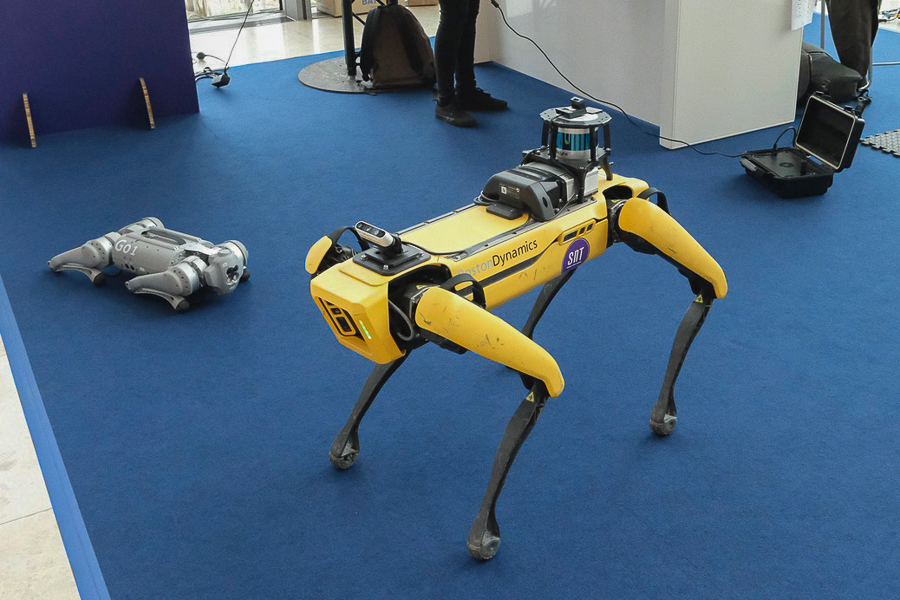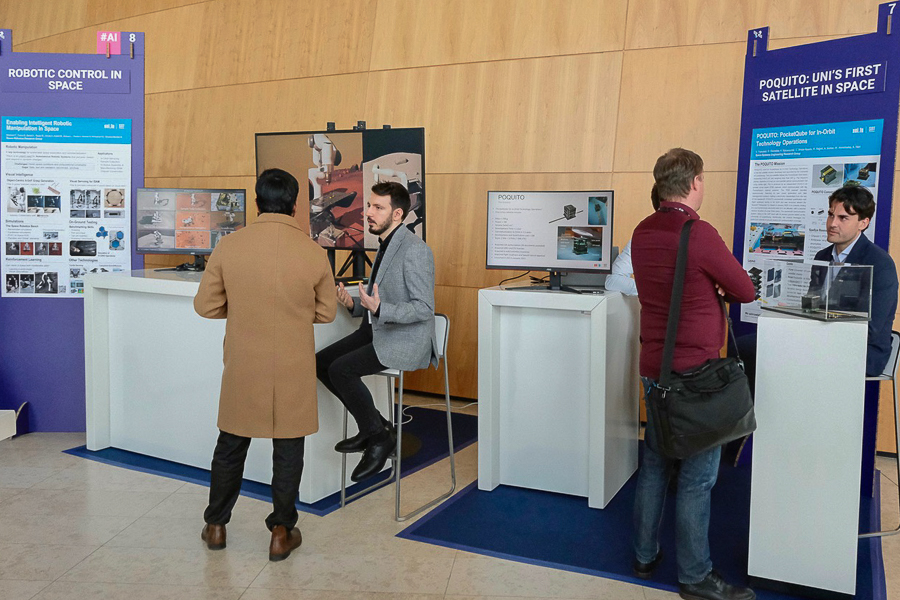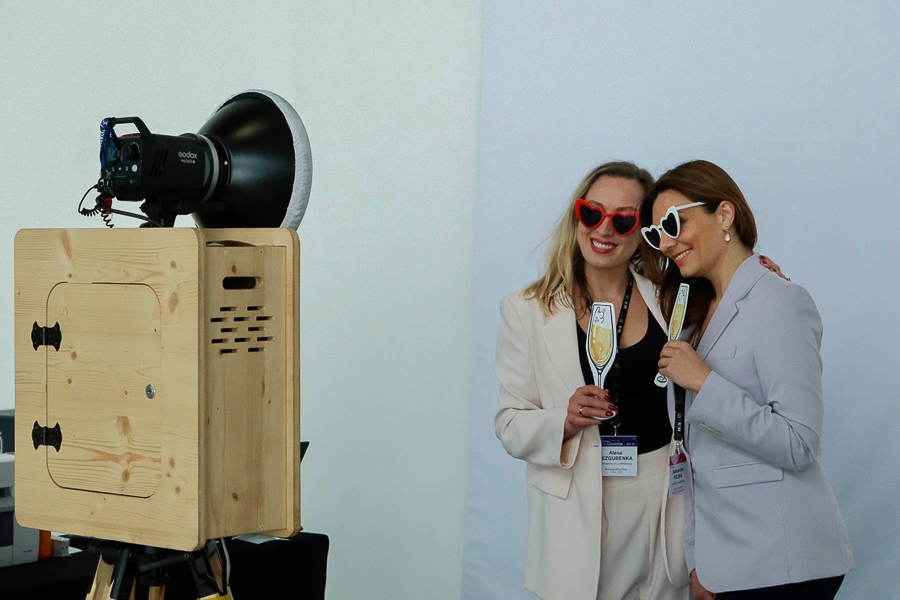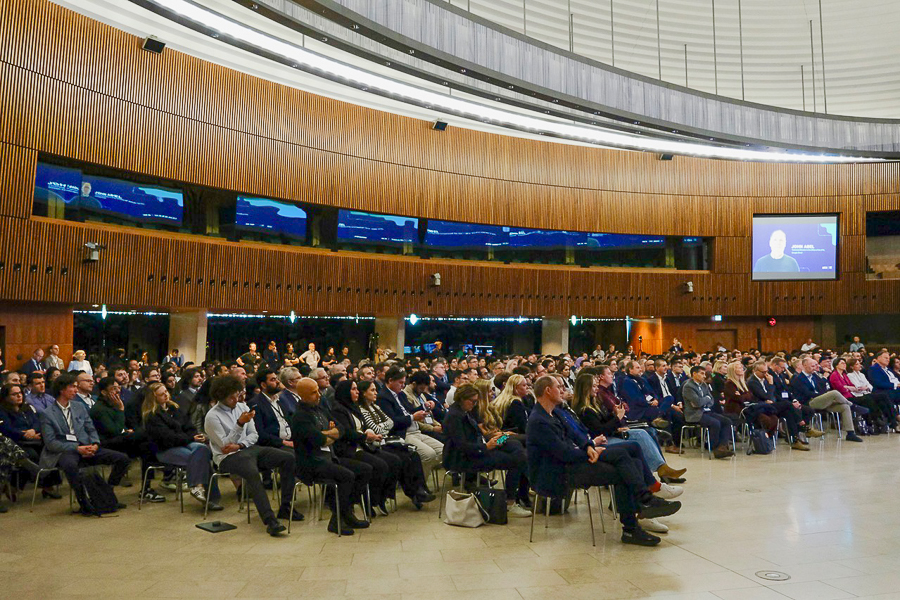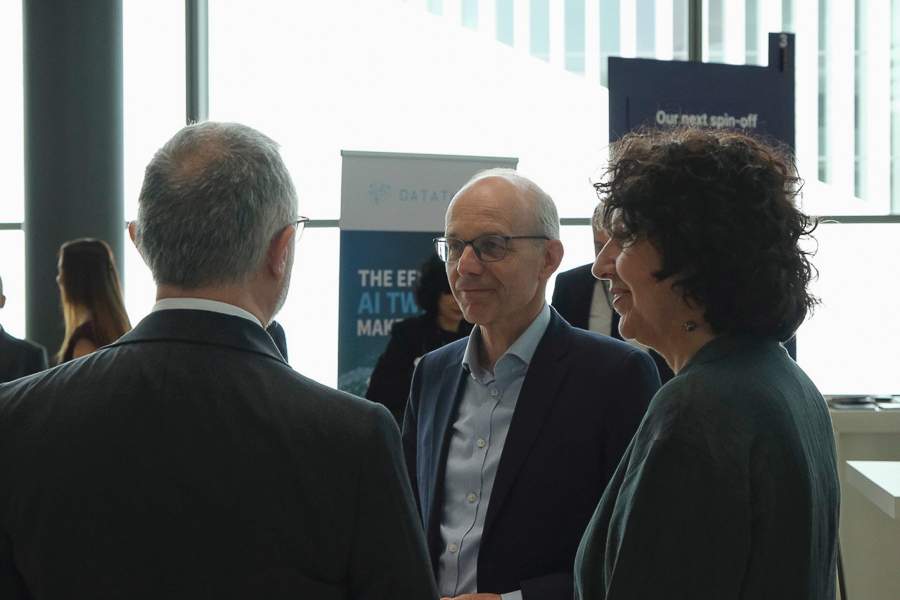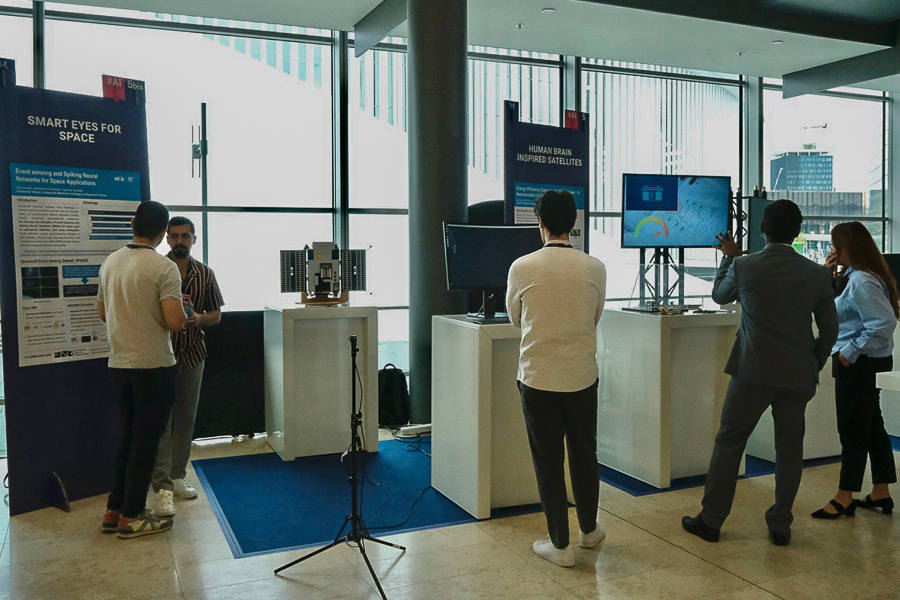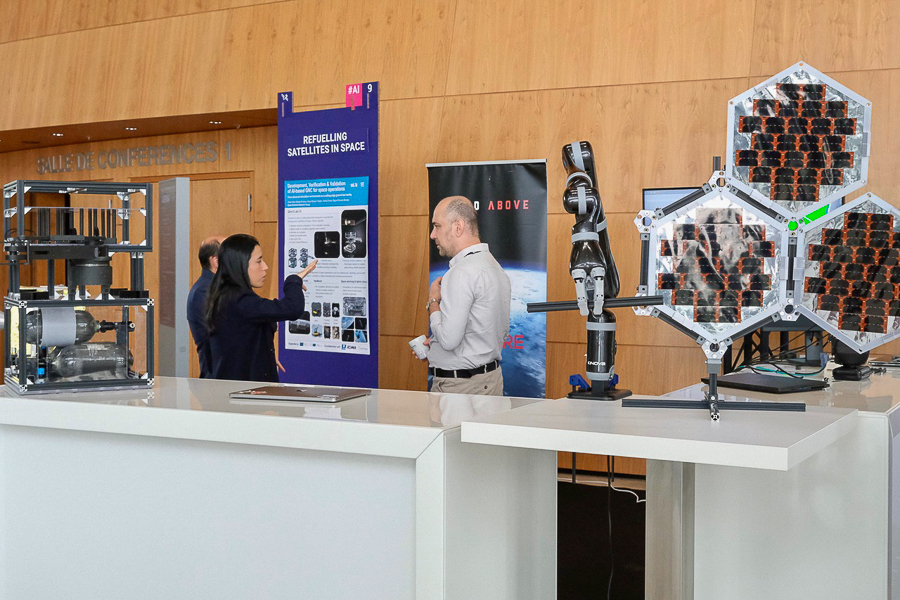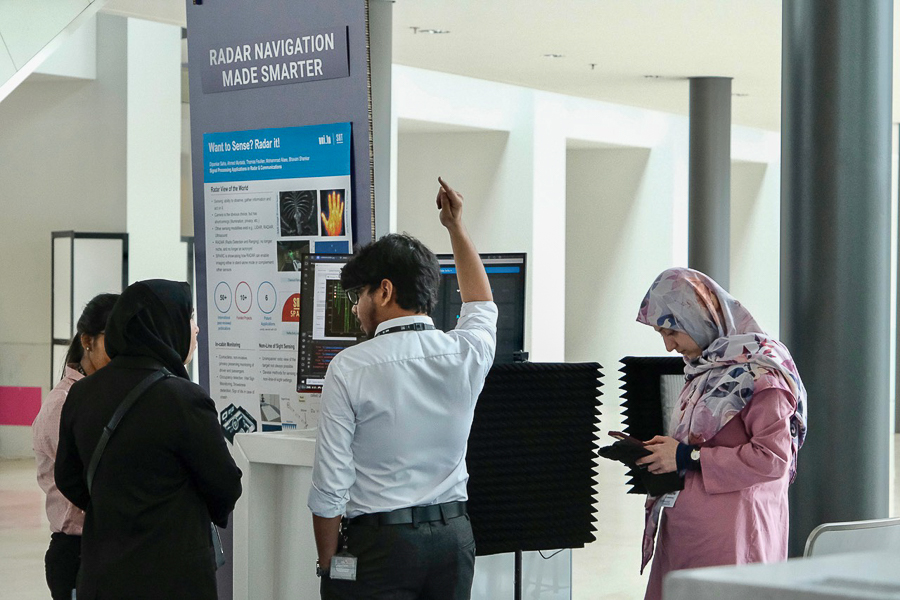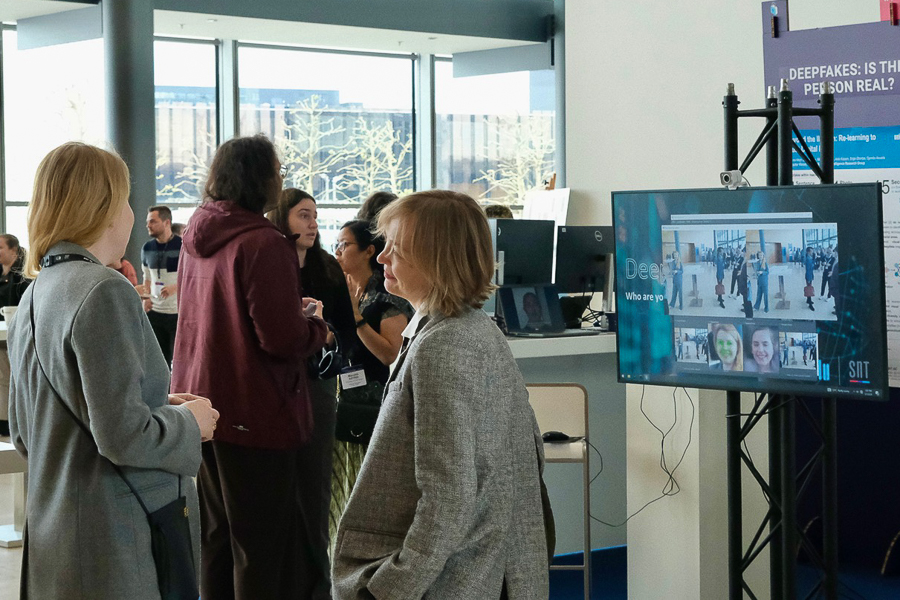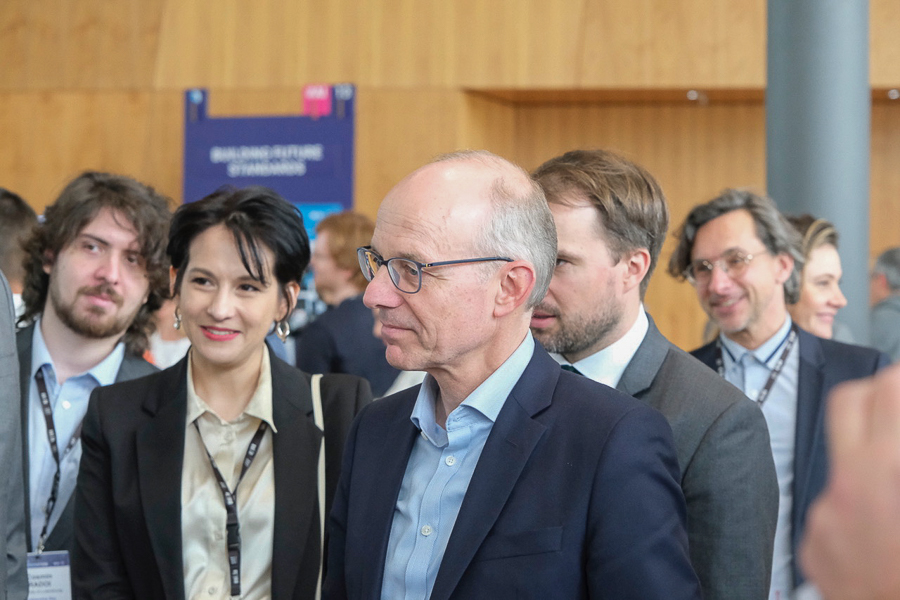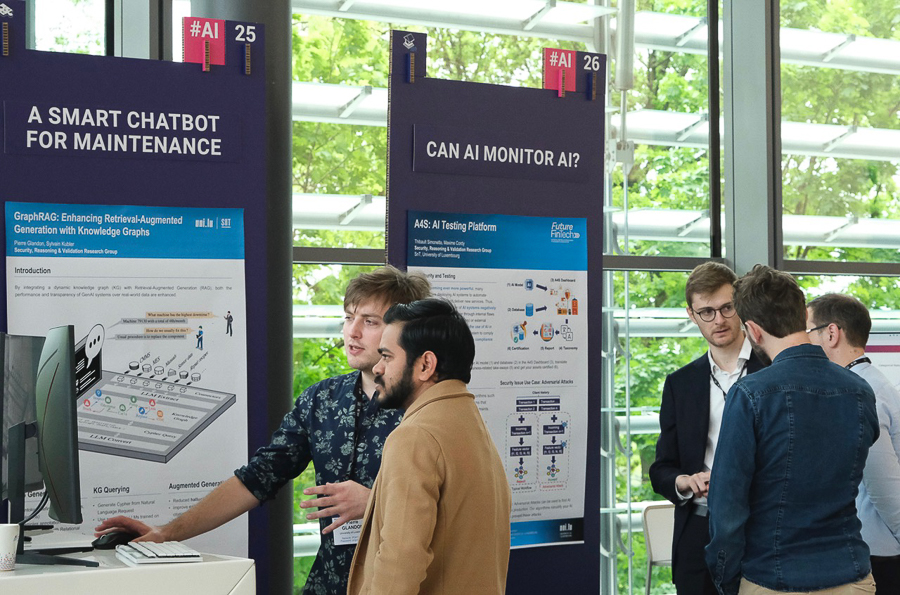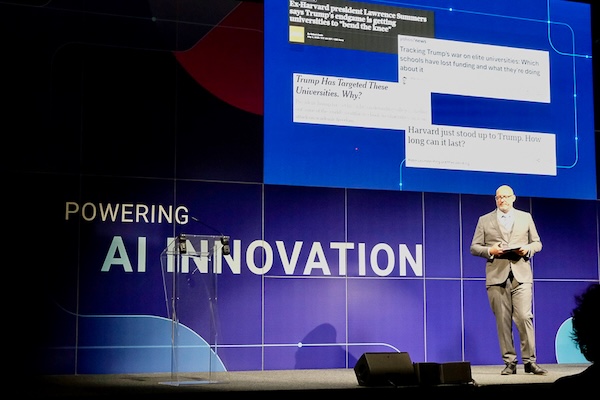 Carlo Duprel, Head of the Technology Transfer Office at SnT;
Credit: Steven Miller, Chronicle.lu
Carlo Duprel, Head of the Technology Transfer Office at SnT;
Credit: Steven Miller, Chronicle.lu
On Wednesday 7 May 2025, the University of Luxembourg’s Interdisciplinary Centre for Security, Reliability and Trust (SnT) held an event, entitled “Powering AI Innovation”, at the European Convention Centre in Luxembourg-Kirchberg.
The event, which attracted approximately 500 attendees, featured a number of stands in the venue’s foyer, showcasing a wide range of projects, covering cybersecurity, fintech, autonomous systems and space systems. Examples on display included an automated solution for cleaning solar panels and detecting defects, artificial intelligence systems (AI) which can monitor and report on the activities of other AI systems, robotic arms used in space which feature a sense of touch and 6G networking, which utilises quantum technology.
The event also featured a series of keynote speeches by invited guests, including Luxembourg Prime Minister, Luc Frieden, and was hosted by Head of the Technology Transfer Office at SnT, Carlo Duprel. Mr Duprel began with a quote from his speech at last year’s event, where he said: “In a world where we stumble from one crisis to another crisis, we need science, we need research, we need cool-headed, fact-based decision-making.” He then remarked on the political pressures universities, research and science are experiencing today. He guided the audience through a brief history of the origins of the first universities, the scientific progress made during the Enlightenment and the principle of unity between science and technology developed in the 19th century, which would become the basis for the institutions of education we know today. He then moved onto the subject of AI and the challenges of the ever-increasing speed of development, which universities must adjust to and how Luxembourg’s university has been at the forefront of interdisciplinary research, placing it in an advantageous position to deal with the challenges ahead.
Vice Rector for Partnership and Innovation at the University of Luxembourg, Marie-Hélène Jobin, then took to the stage and spoke of the history of the University of Luxembourg since it was founded 21 years ago. She remarked: “We stand out for the quality of our publications, the proportion of master’s [degrees] and students and especially PhD candidates, and our exceptional outreach at the international level. The university is a breeding ground for talent and a patent tool of attraction in Luxembourg.” She then spoke of the university’s work in the fields of AI, quantum computing and data sciences, noting that “those topics are at the core of SnT's mission and have allowed us to develop longstanding collaborations with industry but also create new alliances”. She ended her speech by congratulating the students, researchers and staff at the university and celebrating the work undertaken by SnT. She said: “SnT is a role model for the university landscape and I am delighted to be here today to celebrate this remarkable success.”
Prime Minister Luc Frieden then addressed attendees and spoke of innovation as being “the art of making the impossible possible” and noted the examples he had observed in the foyer of the venue before he revealed that “my government will, in the next few weeks, be presenting an AI strategy. That strategy seeks to make Luxembourg an international hub for the secure and sober use of data for the concrete application of artificial intelligence. AI is an opportunity, one that we must seize and harness to the benefit of society”. The Prime Minister emphasised: “The race for innovation in AI, as with any other technology, is thus foremost a race for talent. We need to be able to attract the best and the brightest. We need to bring them together so that they can build on each other's expertise. That is why my government is focussing on talent attraction.”. ReferencingCarlo Duprel’s comments on the political challenges faced by educational institutions, Prime Minister Frieden stated: “We want to make sure that Luxembourg is on the map of researchers in AI, especially now when academic freedom is being challenged in some places.” He then stated his desire to see Luxembourg play a key role in the European Union’s (EU) development of AI technologies and proclaimed: “Together, we can make our country a hub for innovation where ideas do not just emerge, but where they change lives. Together, we can accelerate the journey from the lab to the everyday world. Together, we can build a better future for the benefit of all.”
Director of SnT, Yves Le Traon, was then invited to talk of the research SnT has undertaken in the field of AI, autonomous systems, cybersecurity, fintech, space systems and quantum technologies and remarked on SnT’s ability to “attract the best talent all around the world from more than 70 countries” and its success in developing and maintaining relationships with its partners. He then provided details on the growth of the research centre, the success of placing PhD students with industry partners, the continued expansion of its research groups and the creation of a new research group in cyber security, cyber defence and critical infrastructure.
The final guest to address the attendees was keynote speaker for the event, Technical Director of the Office of the CTO, Google Cloud, John Abel. Mr Abel urged Luxembourg to be bold as a society and embrace the educational and technical ecosystems which have been established in the country and to use them to allow Luxembourg to scale its AI capabilities and punch above its weight. He emphasised that AI is not a new technology, having been in use to varying degrees since the 1960s, but it is now developing faster than ever and this represents an opportunity for the country because of its academic ecosystem and government backing. He remarked: “This is a huge moment that you are creating the opportunities for Europe and the world.” In closing, he added: “It is super important that we help all of society learn this technology because it is going to be a big part of everybody's world.”
The event continued with a question-and-answer session involving John Abel, conducted by Acting Vice Director of SnT, Djamalia Aouada. It then concluded with a series of short talks about subjects including deepfake technology, satellite development and data analytics.

